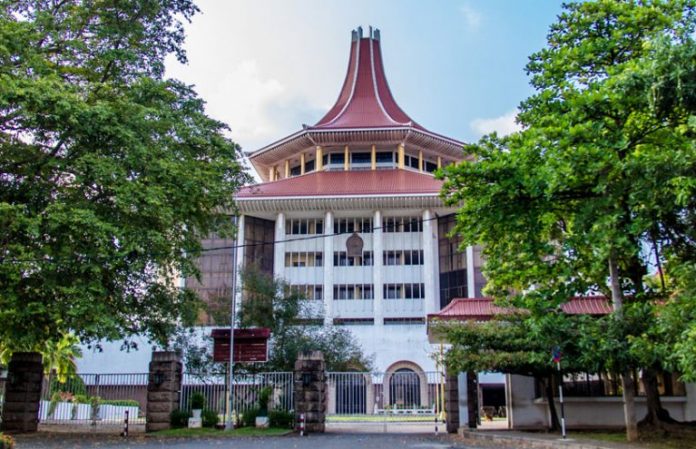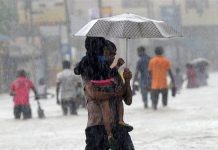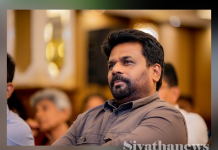Counsel Suren Fernando appearing for the petitioners today concluded the oral submissions by rebutting the respondents arguments.
He said the core issue the petitioners were referring to was based on the fact that ‘whether the then president had executive powers vested in the Cabinet of ministers to authorise Gotabaya Rajapaksa’s citizenship certificate on November 21, 2005 by exercising his powers in a ministerial capacity between a time period where, the Cabinet had been dissolved and had ceased to be function.
He said, Article 44, which existed in the Constitution in 2005 (this article was later removed by the 19th amendment) had provided how such power should be exercised as opposed to what the respondents had made it to be in their argument.
He said under Article 44(1) the President shall appoint the Cabinet immediately after assuming duties as the President.
44(2), which is a sequel subsection to the article says that thereafter the president shall determine on assigning Ministries, Ministers and their subject areas.
After doing so the President could keep the ministries which have not been assigned to any ministers. ‘It is the ministries that have not been allotted to a Minister that could remain with him’,the respondents counsel said.
‘Therefore, the president didn’t have any repository executive power in keeping those executive powers beforehand as the respondents said’, Counsel Fernando said.
He was of the view that therefore there was no plenary executive power given to the president to exercise executive powers completely as the respondents said because such plenary powers have been not recognized by the Supreme Court in recent judgements.
Then he addressed the issue pertaining to the fact that ‘what would happen
between the intervening time period that a new president assumes office and the new cabinet is appointed?’.
Counsel Fernando said in such situations the president could not exercise executive powers of ministries because this is a time when subjects have not been assigned to the ministries.
But, he said this situation would not render the President powerless. He was of the view that the president had the power to act under the public security ordinance if some urgent decisions had to be made in a disastrous situation. ‘So there is no chaosduring this time. It is very clear and unambiguous that the president should first appoint a cabinet, and exercise his executive powers accordingly’ he said.
Therefore he said in order to claim to be a minister, the president should have appointed the Cabinet first as per Article 44(1), he said.
















